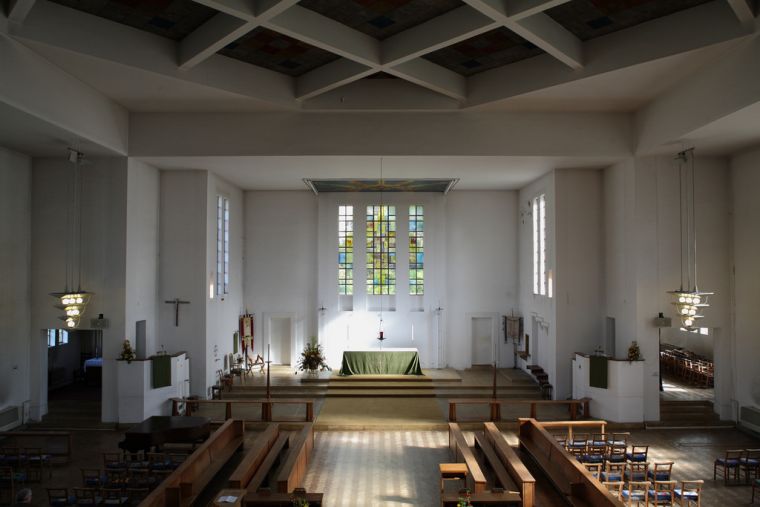One of the most influential Church leaders of Victorian England: Why John Keble matters today

Today, churches across England (and some around the world) will remember the influence of John Keble (1792-1866). As part of the Oxford Movement, he changed the face of the Church of England and Anglicanism around the world. He did this without ever becoming a bishop or taking other senior roles in the Church.
Keble became a priest in the Church of England, following in his father's footsteps, after a glittering university career. He intended to spend his life as an academic and country parson, but his talents were too great to be buried. His book The Christian Year, which contained poems and hymns for use throughout the different seasons of the Church calendar, was the best-selling poetry book of the century; he was also appointed Professor of Poetry at Oxford and wrote a profound exploration of the nature of poetry.
However, it's as a High Church prophet and statesman he will be remembered.
In the early 1830s, a group of Anglican clergymen were beginning to feel that the Church of England had jettisoned too many of its Catholic roots. Though a number of clergy felt this way, Keble fired the starting gun with a sermon he preached on July 14, 1833.
The sermon etitled National Apostasy was a fiery affair, as its name suggests. It was sparked by the Government's decision to suppress Anglican 10 bishoprics in Ireland. This was an entirely reasonable step, given that most Irish were Catholics and the money they cost could be better used elsewhere, but Keble was fiercely opposed to the state overruling the Church. The Church was not just an arm of government, he argued; it was descended from the Apostles, 'a part of Christ's Church, and bound, in all her legislation and policy, by the fundamental laws of the Church'. It was an incendiary call for the Church to be the Church again after generations of decline, compromise and complacency.
The Oxford Movement was born. Along with other leading lights such as Edward Pusey and John Henry Newman, the Movement began publishing tracts – some only a few pages long, others weighty tomes. The 'Tractarians' as they were also known, saw Anglicanism not as a separated Protestant church but as one of the major branches of the Universal Church, along with Roman Catholicism and Eastern Orthodoxy. This made traditional doctrines such as apostolic succession (the idea that priests can trace back their lineage through ordination to the disciples) very important.
The introduction of pre-Reformation rituals to the English Church was a key accomplishment of Keble and the Oxford Movement, alongside its related movement in Cambridge. As the more ritualistic elements of worship began to be integrated into the Church of England, the phrase Anglo-Catholic began to be used.
Anglo-Catholics planted churches, especially in poorer areas of London and other big cities. They developed strong political stances as a result and were among the founders of Christian Socialism in England (a development that would have horrified Keble, a life-long Tory).
The Oxford Movement ended in 1845, with the conversion of Newman to Roman Catholicism. However, Anglo-Catholicism remains a force in the Anglican Communion and Anglo-Catholic churches around the world today owe a debt to Keble as one of their spiritual forefathers. He is remembered by the Oxford College named after him. The eponymous John Keble church in Mill Hill, north London was built in 1936, almost a hundred years after the height of the Oxford Movement.
Keble's legacy could be thought now just to consist in the few hymns of his that are still used such as Sun of my soul, and Saviour dear. Instead, its better to understand Keble as an influential figure who may well be yet to have his greatest influence.
In his lifetime, Catholic emancipation happened, but there was still deep antipathy towards Roman Catholics from many in the English establishment and among ordinary people.
In the 21st century, we have seen the remarkable sight of the Cardinal Archbishop of Westminster and the Archbishop of Canterbury describing each other as friends. Though the Churches have moved apart doctrinally in some ways – not least the ordination of women by the Church of England – unity is on the horizon in a way not conceived of in Keble's day.
It would be overstating things to say he was responsible, but Keble certainly helped to lay the ground work for the many decades of détente that were needed before we could come to the early 21st century and news that only this year, the first ever Anglican evensong was sung in the Vatican. Perhaps his work is not yet done.











